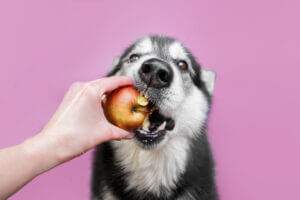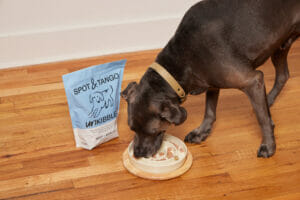As a loving pet parent, you probably put a considerable amount of thought and effort into what you feed your pet. Of course, you know your best pal’s favorite snacks and his/her dinner time preferences too.
Still, have you ever stopped to think about the process of digestion happening within your dog? How long does it really take your dog to digest his/her food, and how does this impact what you feed him/her and the feeding frequency? Does his/her digestive system even come into play?
Don’t worry if you don’t already have the answers to these questions. As it turns out, most pet parents don’t spend much time considering their pet’s digestive process.
At most, the only time that a pet parent really engages with their dog on a digestive level is when they’re topping up their food bowl or ushering them outdoors to avoid “accidents” inside the home.
You might be wondering why you need to know about your dog’s digestive system at all. Having a better understanding of your dog’s digestive system will help you to comprehend your dog’s overall health.
Any changes in his/her process could be an indication of something deeper happening. You should monitor and nurture your dog’s digestive cycle consistently, as his/her digestive needs may change over time.
That said, let’s dive right into understanding the average dog’s digestive system and process.
How Does a Dog’s Digestive System Work?
There are five key areas involved in a dog’s digestive process. These are:
- The mouth
- The esophagus
- The stomach
- The colon
- The rectum and beyond
Now that you have a basic idea of the route that food takes through your dog’s system let’s look a little closer at what happens to food on that journey.
Many people don’t have a clear understanding of how a dog’s anatomy differs from our own. It’s natural to think that a digestive system is the same for all mammals, humans and dogs included.
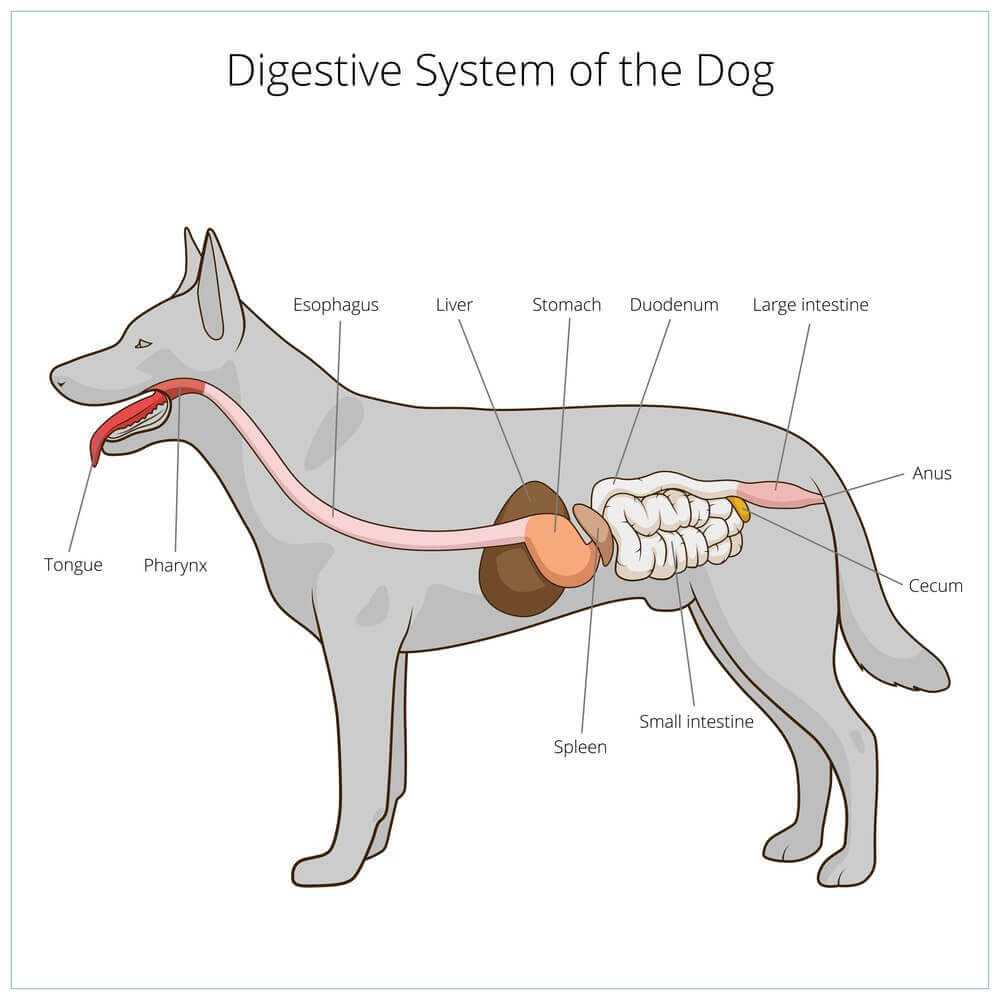
You might be under the impression that your dog’s digestive system works much like your own, but that’s incorrect. They actually function quite differently.
Not many people know this, but 30% of a human’s digestion occurs in the stomach and 70% in the intestinal tract. On the contrary, 70% of dogs’ digestion occurs in their stomach and only 30% in the intestinal tract. So, our systems work similarly, but in reverse from each other!
What happens when your dog eats a meal?
The first step in the process is eager anticipation. While you’re bustling around the kitchen, readying their food, your dog is gearing up for digestion.
The process only really begins the moment he/she takes his/her first bite, though. As he/she chews his/her food, it slides from the mouth down the esophagus and makes a beeline for the stomach. This is where the magic happens (the stomach, that is).
The esophagus is the gatekeeper of the digestive system – all food and water must pass through it. At this point, the journey is well underway already!
Once it reaches the stomach, the food is ready to be processed. Your dog’s system will store partially digested food in the stomach, where acids and enzymes are produced to break food down.
Some senior dogs experience problems with digestive function and require additives and supplements to inspire digestion.
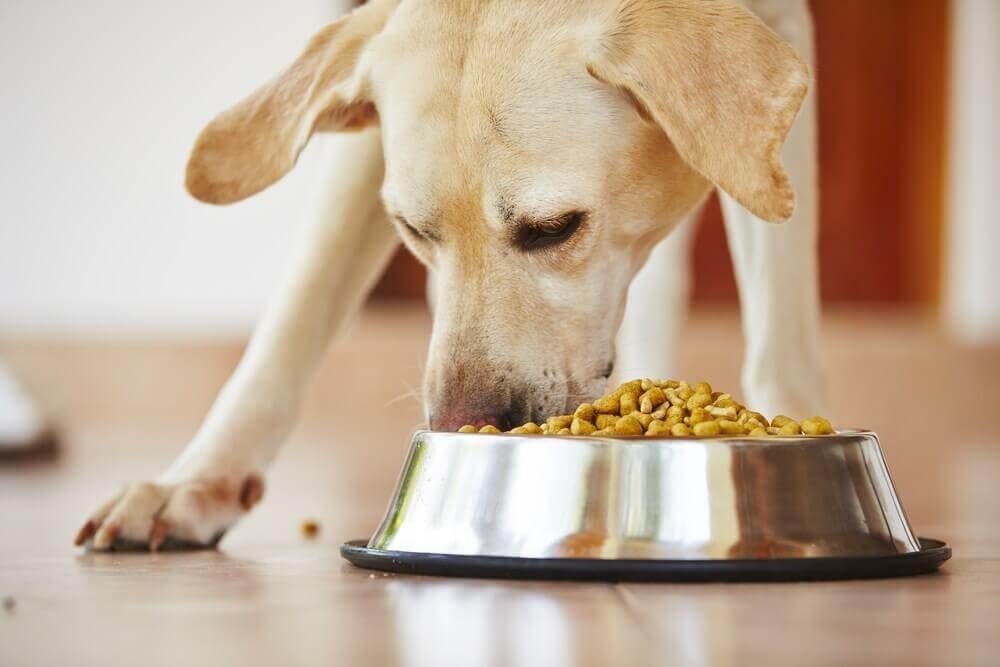
Once the acids and enzymes have done their work, the food is sent to the intestines to break it down further into nutrients that are easily absorbed by the body. And then, the colon steps up to play its role.
The colon is where all the food and treats your dog has ingested turns into waste. It’s stored there until it’s time to travel onto the rectum and beyond!
Of course, it should not be left unattended after re-entering the world as a waste product – as pet parents, we all know that!
You should collect the poop whether in the street or at home to dispose of it in an appropriate place. Plus, you should inspect it to see if it has any unusual color, as it might be a sign of a digestive anomaly.
How Long Does It Take a Dog to Digest Food?
Now that you understand the basics of how your dog digests food, it’s time to consider how long that process realistically takes from start to finish. It would be almost too simple to say that there’s a set period of time that all dogs take to digest food.
As already mentioned, several factors such as age, breed, exercise frequency, diet, and your dog’s overall health will play a role in how long it takes for him/her to digest food (we will briefly discuss each of these factors in the next section).
This is why it’s essential to monitor your dog’s digestive system consistently so that you can pick up on any changes that may suddenly occur. Any changes in the digestive system should be seen as a red flag unless there is a good reason for it, of course.

That said, we can work on averages. For example, if you had to ask how long it takes for a puppy to digest food, the average answer would be around four hours.
Meanwhile, if you wanted to know how long it takes for food to digest in a fully-grown dog, the average answer would be around eight hours.
Factors That Influence Your Dog’s Digestion
Some people wonder how long it takes for a dog to poop something out after eating and what factors actually influence that. The only way to answer this is to say that each dog and puppy has a unique system, and because of that, several factors can influence your pet’s digestion.
Depending on your dog’s unique circumstances, things might take a little longer. What takes one type of dog eight hours to digest could take your dog twelve hours to digest. Nonetheless, here are several influencing factors to consider:
Diet – it’s safe to say that some foods are more digestible than others. If you feed your dog food that’s packed with grain fillers, for instance, he/she may take a little longer to digest it.
Choosing a high-protein dog food that’s easy on the stomach, such as the Spot & Tango recipes range, will ensure that your dog gets a high-nutrient value and has no trouble with digestion.
Breed and size – the breed of your dog plays a big role in his digestive process. Some breeds of dogs require a certain diet; for instance, high energy breeds will need a food source that’s high in protein and may therefore digest their food faster than a sedentary breed that’s not very energetic.
Age – age is quite an important factor, since a dog’s body changes as it gets older (much like ours does). You will notice that your dog’s digestive slows throughout his life cycle.

For instance, he/she may need frequent toilet trips as a puppy, fewer toilet trips as an adult, and then as a senior dog, his/her digestive system may slow down quite uncomfortably and need a bit of assistance to activate the need for toilet trips.
Exercise – people often overlook the fact that their dog is dynamic and full of energy and therefore works off his food-produced energy much quicker than expected.
Keep in mind that the more energetic your dog is, the faster his body will make use of the energy stored in the stomach and intestinal tract. Dogs that don’t do much exercise will digest their food considerably slower.
Supporting Your Dog’s Digestive Health with Vitamins & Supplements
Sometimes things don’t go as planned when it comes to a dog’s digestive system, and that’s okay.
By providing a better diet and ensuring that your dog has the correct vitamins and supplements for a healthy digestive system, you can get your dog’s digestive system back on track (and keep it that way).
Vitamins and supplements can help your dog enjoy more efficient digestion. Most multivitamins prescribed for dogs include a combination of vitamins A, B (especially B12), C, D, E, K, choline, and iodine. These vitamins can aid in a healthier digestive tract.
Of course, you don’t want to overdose your pet on vitamins and supplements – something that many people buy into because pet vitamin supplements are promoted so aggressively.
Instead, provide your dog with food that’s packed with the vitamins and supplements needed without harmful chemicals and additives. Your dog should be able to get the majority of the required vitamins and minerals from his food, if he/she is eating the right food.
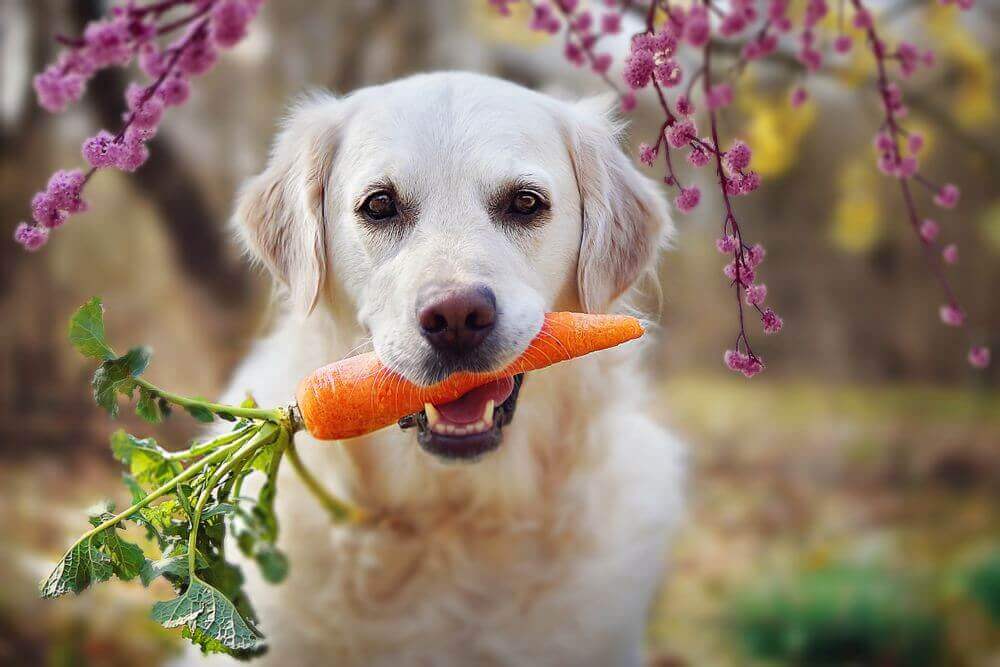
One way to do this is to introduce your pet to the Spot & Tango range of dry Unkibble and wet food recipes too. The Spot & Tango range includes 100% fresh human-grade ingredients that are easy to digest. This includes the likes of duck and salmon, beef and barley, and chicken and brown rice.
All of the food in this range promotes healthy digestion as a result of containing no artificial preservatives, additives, or fillers.
This non-GMO food, which is also hormone-free, is nutrient-dense, including potassium, magnesium, vitamin E and B12, zinc, iron, iodine, kelp (choline), and ensuring your dog gets the goodness he/she needs when he/she needs it.
The Benefits of Highly Digestible Food
Digestibility refers to the nutritional value provided to your dog through his meals and how quickly it can pass through the system. Foods that have a low digestibility typically take a long time to pass through the digestive system and don’t offer much in terms of nutrition.
Low digestibility refers to foods that aim to make your dog feel full instead of well-nourished.
The main benefit of highly digestible food is that your dog will derive more nutrients from it. This means that his immune system will get a boost, and he/she won’t be as prone to illness as dogs unable to derive much nutritional value from their meals.
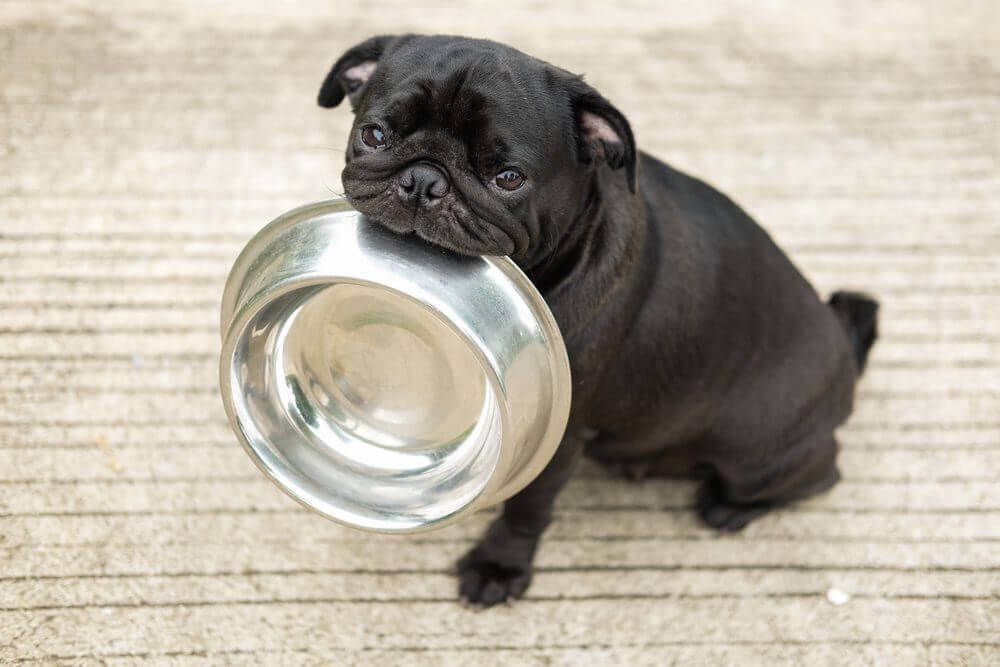
In addition to that, highly digestible food will reduce flatulence, minimize waste (toilet time), and improve your dog’s stool (which makes it easier to pick up when required).
With a highly digestible diet, your dog’s gut won’t be overworked (overworking it can lead to uncomfortable conditions such as colitis). As a result, your dog will have a shiny coat, healthy skin, and sufficient energy to power him/her through every day’s adventures.
Frequently Asked Questions
Q. How long does food stay in a dog’s stomach?
A. Food stays in an adult dog’s stomach for anything between eight and ten hours. Of course, all dogs are different, so you should not be alarmed if your dog has not passed a stool up to 12 hours after consuming food.
Q. How long does it take for a puppy to digest food?
A. Generally speaking, puppies digest food in around four hours. While that may be true, the breed and size of the puppy may come into play. As a general rule of thumb, small breeds of puppies take on average four to six hours to digest food, while bigger breeds can take six to eight hours.
Q. How long does it take for a dog to digest raw food?
A. Dogs digest raw food a lot quicker than processed foods. For instance, a dog that usually takes around four hours to digest a processed meal may take one to two hours to digest raw food.
Q. How long does it take for a dog to digest raw bone?
A. A dog’s digestive system can digest a raw bone in around eight to twelve hours. As always, some factors come into play, such as the bone’s size, whether it was chewed or swallowed whole, age and breed, and so on.
Final Thoughts
Understanding your dog’s digestive system may not be the first thing on your mind every morning but paying attention from time to time can help you better understand your dog’s overall health and well-being.
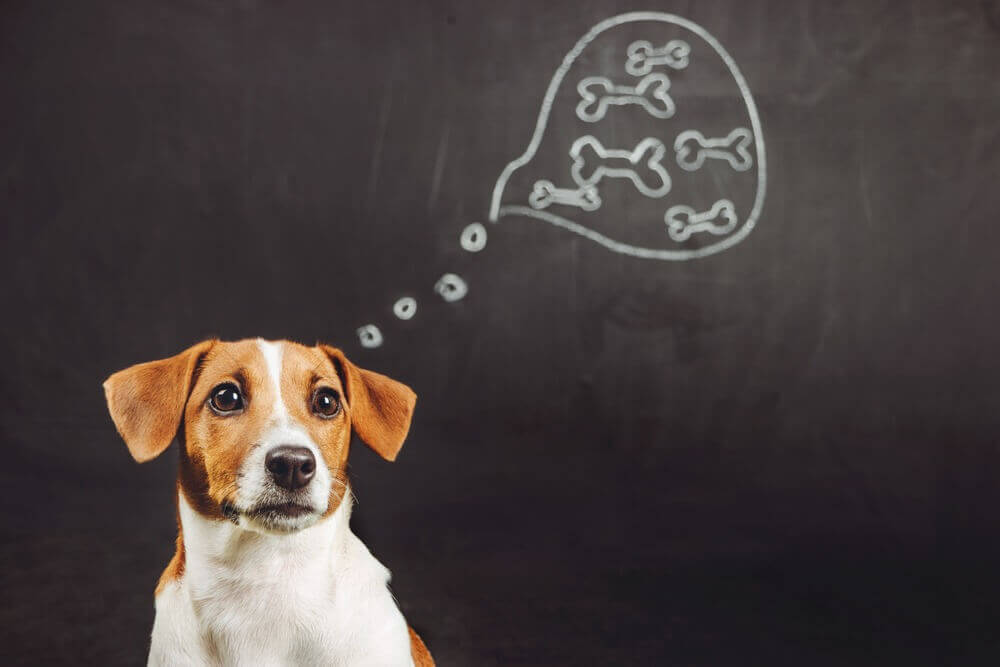
As mentioned in previous articles, avoid giving human foods that can affect his/her digestive movements such as garlic and onion.
Plus, spend some time monitoring your dog’s digestive system and consider switching him/her to a highly digestible food complete with digestion-aiding vitamins and supplements.
Choose Spot & Tango and plan your dog’s meals according to his/her needs here.










